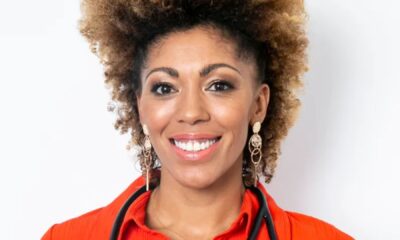World
Two-Thirds of Women Skip Regular Breast Cancer Checks

A recent survey reveals that a staggering two-thirds of women do not routinely check their breasts for signs of cancer. Many cite forgetfulness or a lack of knowledge about what changes to look for. Alarmingly, 13 percent of women acknowledged that they never perform breast checks at all. Only one in five respondents reported being aware of the warning signs and symptoms associated with breast cancer.
Experts recommend that women conduct breast self-exams at least once a month. This involves looking for any unusual changes in shape, appearance, or the presence of lumps, all of which can indicate potential issues. However, the survey, commissioned by Estée Lauder Companies for its Breast Cancer Campaign, found that only 36 percent of the 2,000 women surveyed actually check their breasts monthly.
Raising Awareness and Confidence in Self-Checking
To address this gap, Dr. Zoe Williams has collaborated with Estée Lauder to launch a straightforward self-check video. The initiative aims to encourage more women to adopt regular breast checking as part of their routine, akin to daily habits like brushing teeth.
Dr. Williams emphasized the importance of familiarity with one’s own body: “Getting to know how your breasts look and feel will help you know what is normal for you. Confidence in self-checking is a big barrier for many people, and that’s something we need to address through more education, helping women and men feel more confident in being breast, and chest aware.” She continued, “Everyone should feel empowered to understand their own body, and that starts with knowing what to look out for and when to seek advice.”
The survey also highlighted that a quarter of women who do not check their breasts have never been taught how to do so. Disturbingly, two-thirds of those expressing concern over symptoms have yet to consult a healthcare professional. Interestingly, young women aged 18-29 reported feeling more comfortable discussing breast health with family or friends.
The Call for Educational Changes
The findings indicate a significant desire for better educational resources; a third of women stated they would be more likely to perform self-checks if provided with clear, easy-to-follow demonstrations. Moreover, 40 percent believe that teaching self-checking techniques in schools and universities should be mandatory.
This research follows a 2022 study by Estée Lauder that identified the lowest self-check rates among women under 40, particularly within black and South Asian communities. In spite of previous shortcomings, the new data shows progress: the percentage of women under 40 who check their breasts every two months or less has decreased to 65 percent, while the rate among black women has improved from 76 percent to 56 percent.
Pernilla Nyberg, General Manager and Senior Vice President of Estée Lauder Companies UK & Ireland, expressed optimism about these developments. “We’re encouraged by the improvements in awareness and prevention, but there’s still work to do. Our mission is to ensure everyone knows the signs and feels confident checking their own breasts. We’re proud to continue this vital work across the UK.”
As the campaign moves forward, the focus remains on empowering women with the knowledge and confidence they need to monitor their breast health effectively.
-

 Entertainment3 months ago
Entertainment3 months agoAnn Ming Reflects on ITV’s ‘I Fought the Law’ Drama
-

 Entertainment4 months ago
Entertainment4 months agoKate Garraway Sells £2 Million Home Amid Financial Struggles
-

 Health3 months ago
Health3 months agoKatie Price Faces New Health Concerns After Cancer Symptoms Resurface
-

 Entertainment3 months ago
Entertainment3 months agoCoronation Street’s Carl Webster Faces Trouble with New Affairs
-

 Entertainment3 months ago
Entertainment3 months agoWhere is Tinder Swindler Simon Leviev? Latest Updates Revealed
-

 World2 weeks ago
World2 weeks agoBailey Announces Heartbreaking Split from Rebecca After Reunion
-

 Entertainment4 months ago
Entertainment4 months agoMarkiplier Addresses AI Controversy During Livestream Response
-

 Entertainment2 weeks ago
Entertainment2 weeks agoCoronation Street Fans React as Todd Faces Heartbreaking Choice
-

 Science1 month ago
Science1 month agoBrian Cox Addresses Claims of Alien Probe in 3I/ATLAS Discovery
-

 Health4 months ago
Health4 months agoCarol Vorderman Reflects on Health Scare and Family Support
-

 Entertainment4 months ago
Entertainment4 months agoKim Cattrall Posts Cryptic Message After HBO’s Sequel Cancellation
-

 Entertainment3 months ago
Entertainment3 months agoOlivia Attwood Opens Up About Fallout with Former Best Friend











